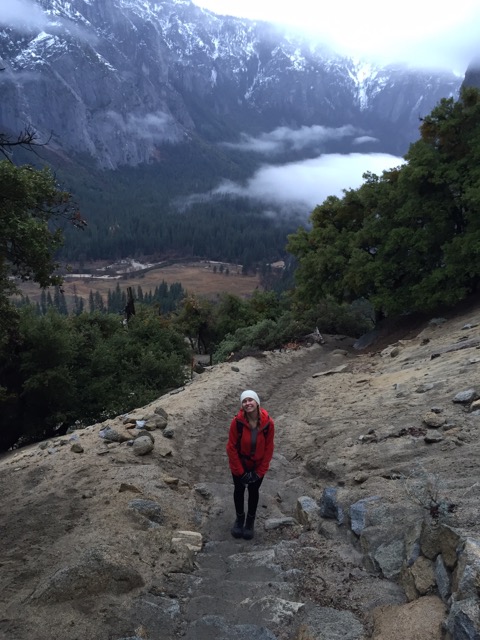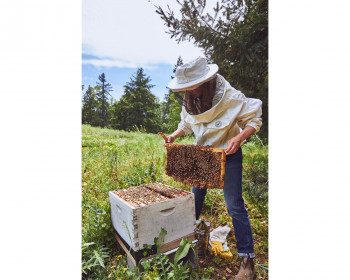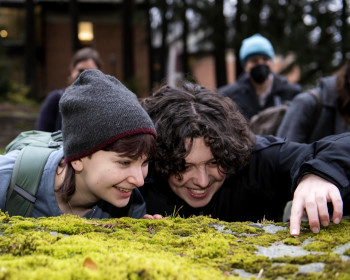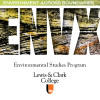ENVS Blog: A Winding Road to Nuclear Engineering
Open gallery

Emma Redfoot (’13)
The Lewis & Clark Environmental Studies Program I remember was full of passionate, bright people wanting to create a better world, but unsure of where to start. I absolutely fit this description when I graduated from L&C. My time at Lewis & Clark helped me understand what kind of world I want to live in, and potential solutions to challenges facing the planet and the people who inhabit it. For any current or future L&C ENVS majors reading this, I hope that my path from uncertainty and a few trials and errors to finding my passion in nuclear engineering demonstrates what life after graduation can afford if you work hard to find what is meaningful to you and pursue it relentlessly.
I graduated from the ENVS Program at Lewis & Clark in May of 2013 with a concentration in Ecotourism in Latin America. I will be starting my Master’s of Science degree in Nuclear Engineering at The University of Idaho in August 2016. I took a very indirect path to find the career I ultimately want to attain, but I do not regret the broad environmental studies background. In pursuing a career in nuclear energy, I view the interdisciplinary perspective I gained at Lewis & Clark as one of my strengths.
After graduating from Lewis & Clark, I applied to be an intern for The Breakthrough Institute, I applied to be a tour guide, and I began pursuing Peace Corps, Americorps, and FEMAcorps options. I received none of them. I am now grateful that none of these opportunities panned out. I moved to a small ski town in Montana and worked part time jobs while reflecting on what I truly wanted to pursue. While I think that pursuing a career right after earning a BA is great, I do not regret my time of reflection in Montana for an instant. People always encourage you to pursue your passion, but I found I first needed to take the time to discover my passion.
I moved to San Luis Obispo, CA thinking I probably wanted to go back to school for engineering. I always enjoyed math and liked the idea of building solutions to the world’s technical problems. I audited several classes at California Polytechnic Institute (CalPoly) while working at a local winery. I found I really enjoyed the engineering coursework. Starting spring 2015, I began taking the nuclear engineering prerequisite coursework full time at Cuesta Community College. I found I received an excellent education at the community college. I would recommend community college courses for anyone interested in going back for a technical education.
I knew I was interested in creating energy solutions. At Lewis & Clark, nuclear energy had always seemed like the means of power generation with the most solvable problems. While continuing my coursework at Cuesta, I began researching the state of the nuclear industry. I found the possibilities surrounding emerging Small Modular Reactors (SMRs) to be promising. After researching the different nuclear engineering master’s degree options, I found the Professor I most wanted to work with, who has a focus on SMR design and computational methods, was at The University of Idaho. I was accepted in the Nuclear Engineering MS program and offered a position as a graduate research assistant starting August 2016.
Graduating from Lewis & Clark and not having a clear direction was challenging. Recognizing that pursuing my interests would require going back and taking a year and a half of undergraduate courses at a community college took some adjusting to. Deciding I wanted to become a nuclear engineer took some key failures I am so grateful occurred. Now, I am happy I took on the challenge and did not let the prerequisite coursework or the constant suggestion that it was going to be too hard for me to switch to nuclear engineering discourage me. No matter what, pursuing a meaningful career requires taking some risks and, sometimes, failing. Learning from my failures has been the most essential tool I have gained since leaving Lewis & Clark. The best way I have found to understand myself, and determine what I really want to work on, is to put myself out there, and sometimes fail along the path.
More Environmental Studies Stories
Environmental Studies is located in room 343A of John R. Howard Hall on the Undergraduate Campus.
MSC: 62
email envs@lclark.edu
voice 503-768-7790
fax 503-768-7620
Symposium Advisor Jessica Kleiss
Environmental Studies
Lewis & Clark
615 S. Palatine Hill Road MSC 62
Portland OR 97219


